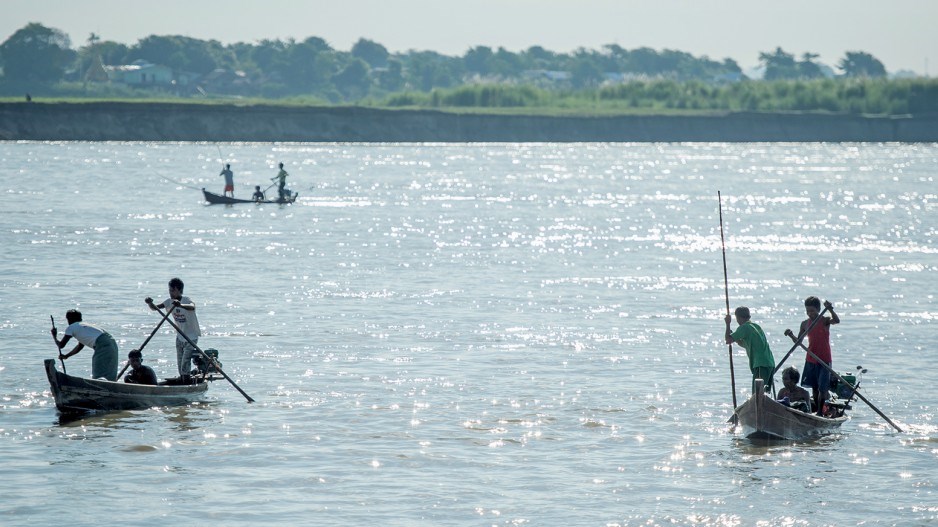The seemingly endless nose-to-tail line of snorting trucks crossing the border from Burma into the far southwestern Chinese town of Ruili was mesmerizing.
Just as transfixing as the volume of trucks was the sameness of their loads. All carried three or four massive hardwood tree trunks, destined for China’s booming furniture-making industry.
That was 20 years ago, and the traffic, all technically illegal, has only accelerated since then. The plundering of Burma’s forests has reached the point where the international Environmental Investigation Agency warned last month that some species will become extinct within three years.
“An unprecedented boom in the popularity of reproduction Qing and Ming dynasty funiture in China made with high-value luxury redwood or rosewood species – known as Hongmu – is placing completely unsustainable demands on forests throughout the Mekong region and worldwide,” said the agency’s report. It estimated that about $800 million worth of Hongmu logs was taken out of Burma, also known as Myanmar, from 2000 to 2013. But a third of that total was exported to China in 2013, and from January to April last year the value of exported logs was 72% of the 2013 total.
Burma enacted a log export ban in April last year, but this has hardly dented the illegal trade. Much of the illegal logging is in mountainous regions of the country still controlled by local militias who have only recently made agreements with the Naypyidaw government to end separatist wars.
Even so, the Burmese authorities appear to be making efforts to end illegal logging. Two weeks ago Naypyidaw announced it had detained 155 Chinese nationals for illegal logging. At the same time, the Beijing government said it had set up a special working group to work with Burma on the issue.
These detentions are the latest irritant in the relationship between Beijing and Naypyidaw, which has gone downhill since the end of nearly half a century of military rule in 2011. Suddenly, public opinion matters, and Burmese have been vocal in expressing what they see as Chinese economic colonialism plundering not just their forests, but their resources in general.
Although the Naypyidaw government remains dominated by former soldiers who have hung up their uniforms and donned civilian clothes, it gave an early signal that voters’ feelings matter by announcing a halt to the controversial and unpopular Chinese Myitsone Dam project. The hydro project by the China Power Investment Corp. is intended to feed electricity over the border into China’s Yunnan province. But President Thein Sein said the project, on Burma’s sacred Irrawaddy River, will not be allowed to go ahead during his tenure in office.
There is major public resentment at other Chinese power and energy projects in Burma, which Beijing sees as a major component in its future energy security. A pipeline has already been completed across northern Burma to transport natural gas to China from Burma’s Bay of Bengal gas fields, and an oil pipeline following the same route is under construction.
Burmese unhappiness extends to Chinese mining companies attempting to extract the country’s extensive store of minerals. For over two years there has been a frequently violent confrontation between local people and a Chinese-Burmese joint venture to mine copper ore at Letpadaung in northern Burma. In December a woman was shot and killed and many other villagers injured in a clash with security forces at the mine site.
This project is a leftover from the time of military rule. The Chinese company is Wanbao, a subsidiary of arms manufacturer Norinco, and the Burmese company is the Union of Myanmar Economic Holdings, a conglomerate owned by Naypyi-daw’s military. •
Jonathan Manthorpe ([email protected]) has been an international affairs columnist for nearly 40 years.




